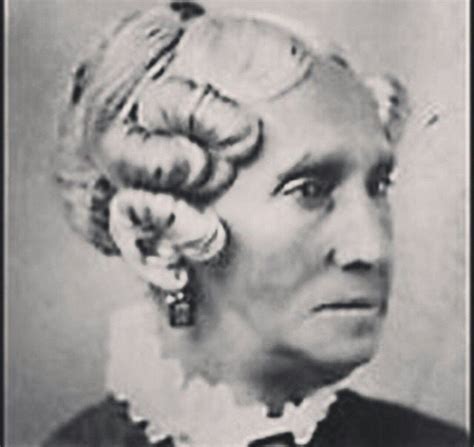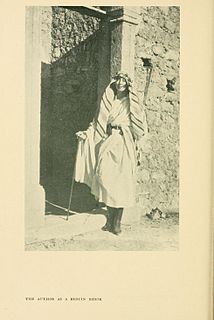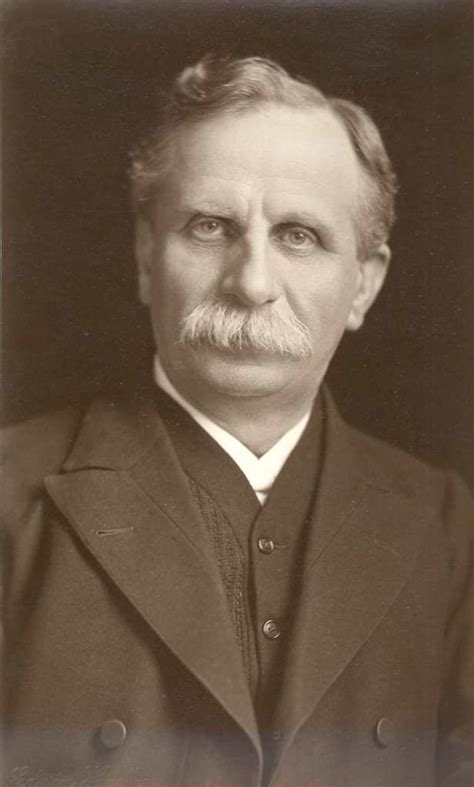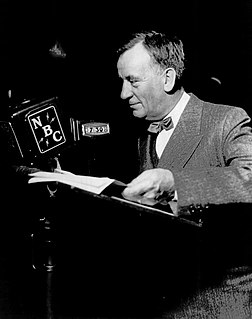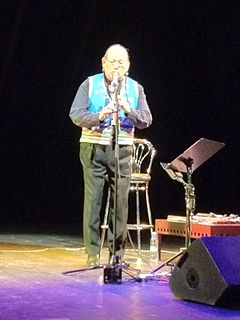Top 513 Toil Quotes & Sayings - Page 9
Explore popular Toil quotes.
Last updated on April 20, 2025.
To-morrow would bring its own trial with it; so would the next day, and so would the next; each its own trial, and yet the very same that was now so unutterably grievous to be borne. The days of the far-off future would toil onward, still with the same burden for her to take up, and bear along with her, but never to fling down; for the accumulating days, and added years, would pile up their misery upon the heap of shame.
... continual hard labor deadens the energies of the soul, and benumbs the faculties of the mind; the ideas become confined, the mind barren, and, like the scorching sands of Arabia, produces nothing; or, like the uncultivated soil, brings forth thorns and thistles. Again, continual hard labor irritates our tempers and sours our dispositions; the whole system become worn out with toil and fatigue; nature herself becomes almost exhausted, and we care but little whether we live or die.
In war," answered the weaver, "the strong make slaves of the weak, and in peace the rich make slaves of the poor. We must work to live, and they give us such mean wages that we die. We toil for them all day long, and they heap up gold in their coffers, and our children fade away before their time, and the faces of those we love become hard and evil. We tread out the grapes, another drinks the wine. We sow the corn, and our own board is empty. We have chains, though no eye beholds them; and are slaves, though men call us free.
No pain that we suffer, no trial that we experience is wasted. It ministers to our education, to the development of such qualities as patience, faith, fortitude and humility. All that we suffer and all that we endure, especially when we endure it patiently, builds up our characters, purifies our hearts, expands our souls, and makes us more tender and charitable, more worthy to be called the children of God . . . and it is through sorrow and suffering, toil and tribulation, that we gain the education that we come here to acquire and which will make us more like our Father and Mother in heaven.
Nine requisites for contented living: Health enough to make work a pleasure. Wealth enough to support your needs. Strength to battle with difficulties and overcome them. Grace enough to confess your sins and forsake them. Patience enough to toil until some good is accomplished. Charity enough to see some good in your neighbor. Love enough to move you to be useful and helpful to others. Faith enough to make real the things of God. Hope enough to remove all anxious fears concerning the future.
But young men have not only this frivolous ambition of being thought masters of execution, inciting them on the one hand, but also their natural sloth tempting them on the other. They are terrified at the prospect before them, of the toil required to attain exactness. The impetuosity of youth is disgusted at the slow approaches of a regular siege, and desires, from mere impatience of labour, to take the citadel by storm. They wish to find some shorter path to excellence, and hope to obtain the reward of eminence by other means, than those which the indispensable rules of art have prescribed.
There is an old song which asserts 'the best things in life are free.' Not true! Utterly false! This was the tragic fallacy which brought on the decadence and collapse of the democracies of the twentieth century; those noble experiments failed because the people had been led to believe that they could simply vote for whatever they wanted...and get it without toil, without sweat, without tears. Nothing of value is free. Even the breath of life is purchased at birth only through gasping effort and pain.
Sweet moonlight, shining full and clear, Why do you light my torture here? How often have you seen me toil, Burning last drops of midnight oil. On books and papers as I read, My friend, your mournful light you shed. If only I could flee this den And walk the mountain-tops again, Through moonlit meadows make my way, In mountain caves with spirits play - Released from learning's musty cell, Your healing dew would make me well!
We do not ask what hope of gain makes a little bird warble, since we know that it takes delight in singing because it is for that very singing that the bird was made, so there is no need to ask why the human mind undertakes such toil in seeking out these secrets of the heavens. ... And just as other animals, and the human body, are sustained by food and drink, so the very spirit of Man, which is something distinct from Man, is nourished, is increased, and in a sense grows up on this diet of knowledge, and is more like the dead than the living if it is touched by no desire for these things.
Love flies, runs, leaps for joy; it is free and unrestrained. Love gives all for all, resting in One who is highest above all things, from whom every good flows and proceeds. Love does not regard the gifts, but turns to the Giver of all good gifts. Love knows no limits, but ardently transcends all bounds. Love feels no burden, takes no account of toil, attempts things beyond its strength; love sees nothing as impossible, for it feels able to achieve all things. Love therefore does great things; it is strange and effective; while he who lacks love faints and fails.
Actively we have woven ourselves with the very warp and woof of this nation, - we have fought their battles, shared their sorrow, mingled our blood with theirs, and generation after generation have pleaded with a headstrong, careless people to despise not Justice, Mercy and Truth, lest the nation be smitten with a curse. Our song, our toil, our cheer and warning have been given to this nation in blood-brotherhood. Are not these gifts worth the giving? Is not this worth the striving? Would America have been America without her Negro People?
Be assured that every man's success is in proportion to his average ability. The meadow flowers spring and bloom where the watersannually deposit their slime, not where they reach in some freshet only. A man is not his hope, nor his despair, nor yet his past deed. We know not yet what we have done, still less what we are doing. Wait till evening, and other parts of our day's work will shine than we had thought at noon, and we shall discover the real purport of our toil. As when the farmer has reached the end of the furrow and looks back, he can tell best where the pressed earth shines most.
I favor the policy of economy, not because I wish to save money, but because I wish to save people. The men and women of this country who toil are the ones who bear the cost of the Government. Every dollar that we carelessly waste means that their life will be so much the more meager. Every dollar that we save means that their life will be so much the more abundant. Economy is idealism in its most practical form.
Why had we come to the moon? The thing presented itself to me as a perplexing problem. What is this spirit in man that urges him for ever to depart from happiness and security, to toil, to place himself in danger, to risk an even a reasonable certainty of death? It dawned upon me that there in the moon as a thing I ought always to have known, that man is not made to go about safe and comfortable and well fed and amused. ... against his interest, against his happiness, he is constantly being driven to do unreasonable things. Some force not himself impels him, and he must go.
That is the charm of a map. It represents the other side of the horizon where everything is possible. It has the magic of anticipation without the toil and sweat of realization. The greatest romance ever written pales before the possibilities of adventure that lie in the faint blue trails from sea to sea. The perfect journey is never finished, the goal is always just across the next river, round the shoulder of the next mountain. There is always one more track to follow, one more mirage to explore. Achievement is the price which the wanderer pays for the right to venture.
All day long this man would toil thus, his whole being centered upon the purpose of making twenty-three instead of twenty-two and a half cents an hour; and then his product would be reckoned up by the census taker, and jubilant captains of industry would boast of it in their banquet halls, telling how our workers are nearly twice as efficient as those of any other country. If we are the greatest nation the sun ever shone upon, it would seem to be mainly because we have been able to goad our wage-earners to this pitch of frenzy.
In a word, we may reasonably hope for the virtual abolition of education when I'm as good as you has fully had its way. All incentives to learn and all penalties for not learning will vanish.The few who might want to learn will be prevented; who are they to overtop their fellows? And anyway the teachers-or should I say, nurses?-will be far too busy reassuring the dunces and patting them on the back to waste any time on real teaching. We shall no longer have to plan and toil to spread imperturable conceit and incurable ignorance among men. The little vermin themselves will do it for us.
The slave labors, but with no cheer - it is not the road to respectability, it will honor him with no citizens' trust, it brings no bread to his family, no grain to his garner, no leisure in after-days, no books or papers to his children. It opens no school-house door, builds no church, rears for him no factory, lays no keel, fills no bank, earns no acres. With sweat and toil and ignorance he consumes his life, to pour the earnings into channels from which he does no drink, into hands that never honor him. But perpetually rob and often torment.
My God, whose son, as on this night, took on Him the form of man, and for man vouchsafed to suffer and bleed, controls thy hand, and without His behest, thou canst not strike a stroke. My God is sinless, eternal, all-wise, and in Him is my trust, and though stripped and crushed by thee, -though naked, desolate, void of resource- I do not despair:where the lance of Guthrum now wet with my blood, I should not despair. I watch, I toil, I hope, I pray: Jehovah, in His own time, will aid.
Thou silent power, whose welcome sway charms every anxious thought away; in whose divine oblivion drown'd, sore pain and weary toil grow mild, love is with kinder looks beguiled, and Grief forgets her fondly cherish'd wound; oh, whither hast thou flown, indulgent god? God of kind shadows and of healing dews, whom dost thou touch with thy Lethaean rod? Around whose temples now thy opiate airs diffuse?
It can be set down as a broad, general principle that we cannot indulge in idleness and abundance during both the first and second half of our life. Study, application, industry, enthusiasm while we are young usually enable us to enjoy life when we grow older. But unless we toil and strive and earn all we can in the first half, the second half of our life is liable to bring disappointment, discomfort, distress. The time to put forth effort is when we are most able to do it, namely, in the years of our greatest strength. The law of compensation hasn't ceased to function.
A gentleman of Typee can bring up a numerous family of children and give them all a highly respectable cannibal education, with infinitely less toil and anxiety than he expends in the simple process of striking a light; whilst a poor European artisan, who through the instrumentality of a lucifer performs the same operation in one second, is put to his wits' end to provide for his starving offspring that food which the children of a Polynesian father, without troubling their parent, pluck from the branches of every tree around them.
In vast stretches of the earth, men awoke today in hunger. They will spend the day in unceasing toil. And as the sun goes down they will still know hunger. They will see suffering in the eyes of their children. Many despair that their labor will ever decently shelter their families or protect them against disease. So long as this is so, peace and freedom will be in danger throughout our world. For wherever free men lose hope of progress, liberty will be weakened and the seeds of conflict will be sown.
Faith is rest, not toil. It is the giving up all the former weary efforts to do or feel something good, in order to induce God to love and pardon; and the calm reception of the truth so long rejected, that God is not waiting for any such inducements, but loves and pardons of His own goodwill, and is showing that goodwill to any sinner who will come to Him on such a footing, casting away his own performances or goodnesses, and relying implicitly upon the free love of Him who so loved the world that He gave His only-begotten Son.
Satan dreads nothing but prayer. . . . The Church that lost its Christ was full of good works. Activities are multiplied that meditation may be ousted, and organizations are increased that prayer may have no chance. Souls may be lost in good works, as surely as in evil ways. The one concern of the devil is to keep the saints from praying. He fears nothing from prayerless studies, prayerless work, and prayerless religion. He laughs at our toil, mocks at our wisdom, but trembles when we pray.
As a moral and social institution, a weekly rest is invaluable. It is a quiet domestic reunion for the bustling sons of toil. It ensures the necessary vacation in those earthly and turbulent anxieties and affections, which would otherwise become inordinate and morbid. It brings around a season of periodical neatness and decency, when the soil of weekly labour is laid aside, and men meet each other amidst the decencies of the sanctuary, and renew their social affections. But above all, a Sabbath (one day of rest in seven) is necessary for man's moral and religious interests.
Weary with toil, I haste me to my bed The dear repose for limbs with travel tired; But then begins a journey in my head To work my mind, when body's work's expir'd: For then my thoughts-from far where I abide- Intend a zealous pilgrimage to thee, And keep my drooping eyelids open wide, Looking on darkness which the blind do see: Save that my soul's imaginary sight Presents thy shadow to my sightless view, Which, like a jewel hung in ghastly night, Makes black night beauteous and her old face new. Lo! thus, by day my limbs, by night my mind, For thee, and for myself no quiet find.
Technologies of easy travel "give us wings; they annihilate the toil and dust of pilgrimage; they spiritualize travel! Transition being so facile, what can be any man's inducement to tarry in one spot? Why, therefore, should he build a more cumbrous habitation than can readily be carried off with him? Why should he make himself a prisoner for life in brick, and stone, and old worm-eaten timber, when he may just as easily dwell, in one sense, nowhere,-in a better sense, wherever the fit and beautiful shall offer him a home?
We have thought of peace as passive and war as the active way of living. The opposite is true. War is not the most strenuous life. It is a kind of rest cure compared to the task of reconciling our differences ... From War to Peace is not from the strenuous to the easy existence; it is from the futile to the effective, from the stagnant to the active, from the destructive to the creative way of life ... The world will be regenerated by the people who rise above these passive ways and heroically seek, by whatever hardship, by whatever toil, the methods by which people can agree.
There's nothing that builds up a toil-weary soul
Like a day on a stream,
Back on the banks of the old fishing hole
Where a fellow can dream.
There's nothing so good for a man as to flee
From the city and lie
Full length in the shade of a whispering tree
And gaze at the sky.
. . . .
It is good for the world that men hunger to go
To the banks of a stream,
And weary of sham and of pomp and of show
They have somewhere to dream.
For this life would be dreary and sordid and base
Did they not now and then
Seek refreshment and calm in God's wide, open space
And come back to be men.
A birth we embark on a good journey, seeking a destination of happiness. The journeys on our life-road facilitate development of our emotional, mental, physical and spiritual states-of-being, into a way of true power and wisdom. The Heart-center power, expressed as happiness and love, will guide us upward on a path away from frustration, bitter toil and travail. These journeys are directed inward, not outwardly in material mementos of ego and possession. The lesson is relearning that which has been suppressed and forgotten, in ourselves, since our earliest childhood.
Futility Move him into the sun - Gently its touch awoke him once, At home, whispering of fields unsown. Always it woke him, even in France, Until this morning and this snow. If anything might rouse him now The kind old sun will know. Think how it wakes the seeds, - Woke, once, the clays of a cold star. Are limbs, so dear-achieved, are sides, Full-nerved -still warm -too hard to stir? Was it for this the clay grew tall? -O what made fatuous sunbeams toil To break earth's sleep at all?
Fare well we call to hearth and hall Though wind may blow and rain may fall We must away ere break of day Over the wood and mountain tall To Rivendell where Elves yet dwell In glades beneath the misty fell Through moor and waste we ride in haste And wither then we cannot tell With foes ahead behind us dread Beneath the sky shall be our bed Until at last our toil be sped Our journey done, our errand sped We must away! We must away! We ride before the break of day!

